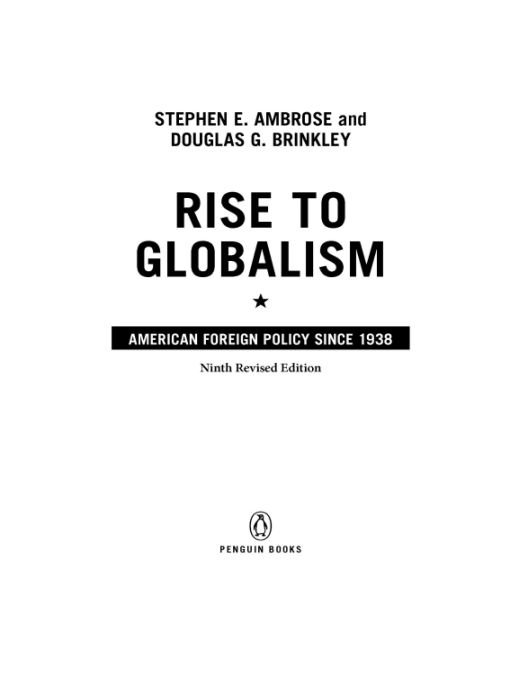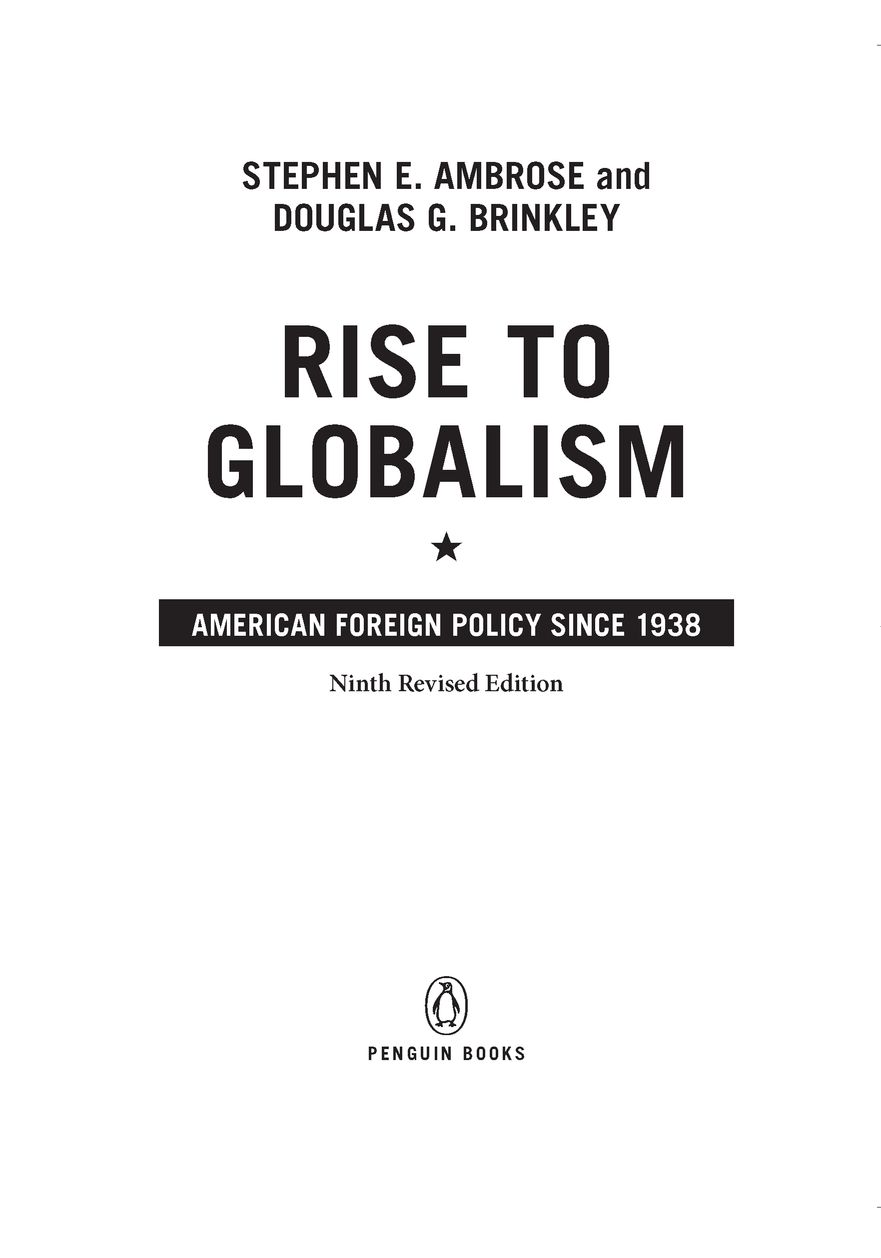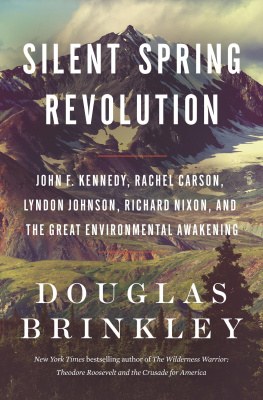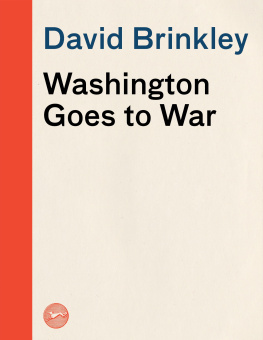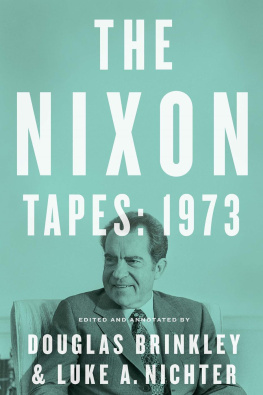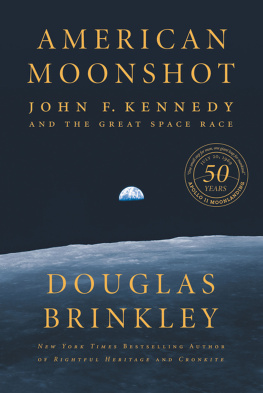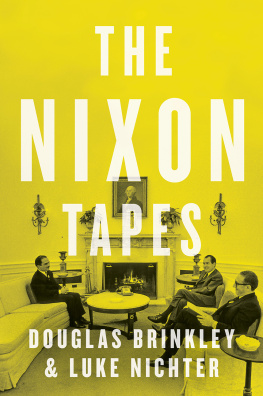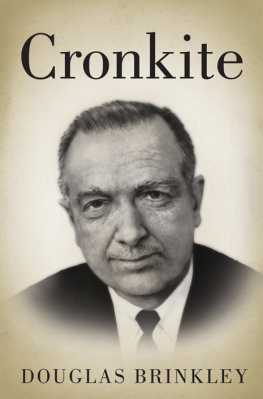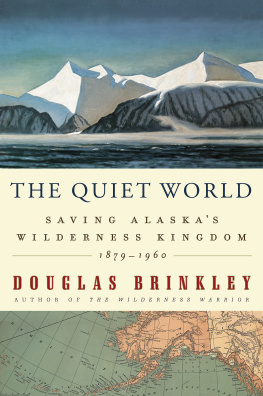Table of Contents
PENGUIN BOOKS
RISE TO GLOBALISM
STEPHEN E. AMBROSE (1936-2002) was born in Decatur, Illinois. He received a B.A. from the University of Wisconsin in 1956, an M.A. from Louisiana State University in 1957, and a Ph.D. in history from the University of Wisconsin in 1963. A longtime professor of history at the University of New Orleans, Ambrose wrote numerous books on military affairs and foreign policy in the nineteenth and twentieth centuries, including biographies of Dwight Eisenhower and Richard Nixon. His most recent booksD-Day, Undaunted Courage, and Band of Brothers were mainstays on the New York Times bestseller list.
DOUGLAS G. BRINKLEY is a professor of history at Rice University and a fellow at the James A. Baker III Institute for Public Policy. He is the award-winning author of twenty-five books, including The Unfinished Presidency: Jimmy Carters Journey Beyond the White House; Wheels for the World: Henry Ford, His Company, and a Century of Progress; Tour of Duty: John Kerry and the Vietnam War; Gerald R. Ford; and The Reagan Diaries. A longtime member of the Council on Foreign Relations, he lives in the Texas towns of Austin and Galveston.
WORKS BY STEPHEN E. AMBROSE
Upton and the Army
Halleck: Lincolns Chief of Staff
Ikes Spies: Eisenhower and the Espionage Establishment
Crazy Horse and Custer: The Parallel Lives of Two American Warriors
Eisenhower and Berlin, 1945: The Decision to Halt at the Elbe
Duty, Honor, Country: A History of West Point
The Supreme Commander: The War Years of Dwight D. Eisenhower
Eisenhower: Soldier, General, President-Elect, 1890-1952
Eisenhower: The President
Pegasus Bridge: June 6, 1944
Nixon: The Education of a Politician, 1913-1962
Nixon: The Triumph of a Politician, 1962-1972
Nixon: The Ruin and Recovery of a Politician, 1973-1990
Eisenhower: Soldier and President
Band of Brothers: E Company, 506th Regiment, 101st Airborne from
Normandy to Hitlers Eagle Nest
D-Day
Undaunted Courage
WORKS BY DOUGLAS G. BRINKLEY
Jean Monnet: Path to European Unity (ed.)
Dean Acheson: The Cold War Years
Dean Acheson and the Making of U.S. Foreign Policy
Driven Patriot: The Life and Time of James Forrestal (coauthor)
The Majic Bus: An American Odyssey
FDR and the Creation of the United Nations (coauthor)
The Unfinished Presidency: Jimmy Carters Journey Beyond the White House
Gerald R. Ford
The Boys of Pointe du Hoc
The Reagan Diaries
Wheels for the World: Henry Ford and a Century of Progress
The Wilderness Warrior: Theodore Roosevelt and the Crusade of America
For Alexander, Cornia, and Stephen Riley.
May they know only peace.
Introduction
IN 1939, ON THE EVE OF WORLD WAR II, THE UNITED STATES HAD AN army of 185,000 men with an annual budget of less than $500 million. America had no entangling alliances and no American troops were stationed in any foreign country. The dominant political mood was isolationism. Americas physical security, the sine qua non of foreign policy, seemed assured, not because of American alliances or military strength but because of the distance between America and any potential enemy.
A half century later the United States had a huge standing Army, Air Force, and Navy. The budget of the Department of Defense was over $300 billion. The United States had military alliances with fifty nations, over a million soldiers, airmen, and sailors stationed in more than 100 countries, and an offensive capability sufficient to destroy the world many times over. It had used military force to intervene in Indochina, Lebanon, the Dominican Republic, Grenada, Central America, and the Persian Gulf, supported an invasion of Cuba, distributed enormous quantities of arms to friendly governments around the world, and fought costly wars in Korea and Vietnam. But despite all the money spent on armaments and no matter how far outward America extended her power, Americas national security was constantly in jeopardy.
By 1993, however, the Soviet Union was gone, there were no military threats to the United States, and the American armed forces were shrinking. Americas overseas concerns were no longer the armies and missiles of the communist superpower, but access to raw materials and markets and concern over small nations causing major upheavals, plus the trade policies of its World War II enemies, Germany and Japan. America had won the Cold War and was once again, as in 1939, turning away from the world.
Shifts in attitudes accompanied these bewildering changes in policy. Before World War II most Americans believed in a natural harmony of interests between nations, assumed that there was a common commitment to peace, and argued that no nation or people could profit from a war. These beliefs implied that peace was the normal condition between states and that war, if it came, was an aberration resulting from the irrational acts of evil or psychotic men. It was odd that a nation that had come into existence through a victorious war, gained large portions of its territory through war, established its industrial revolution and national unity through a bloody civil war, and won a colonial empire through war could believe that war profited no one. Yet most Americans in the 1930s did so believe.
During and after World War II, Americans changed their attitudes. They did not come to relish war, but they did learn to accept it. They also became aware of their own vulnerability, which supported the post-Pearl Harbor belief that threats had to be met early and overseas. After World War I, the United States had adopted a policy of unilateral disarmament and neutrality as a way to avoid another war. After World War II, the nation adopted a policy of massive rearmament and collective security as a way to avoid another war. That meant stationing troops and missiles overseas.
Technological change, especially in military weapons, gave added impetus to the new expansionism. For the first time in its history the United States could be threatened from abroad. High-speed ships, long-range bombers, jet aircraft, atomic weapons, and eventually intercontinential missiles all combined to endanger the physical security of the United States.
Simultaneously, America became vulnerable to foreign economic threats. An increasingly complex economy, coupled with the tremendous economic boom of the postwar years maintained by cheap energy, made America increasingly dependent on foreign sources.
And so, the irony. America had far more military power in the early 1990s than she had had in the late thirties, but she was less secure. America was far richer in the nineties than she had been during the Depression, but also more vulnerable to economic blackmail.
It was an unexpected outcome. At the conclusion of World War II, America was on a high. In all the world only the United States had a healthy economy, an intact physical plant capable of mass production of goods, and excess capital. American troops occupied Japan, the only important industrial power in the Pacific, while American influence was dominant in France, Britain, and West Germany, the industrial heart of Europe. The Pacific and the Mediterranean had become American lakes. Above all, the United States had a monopoly on the atomic bomb.

